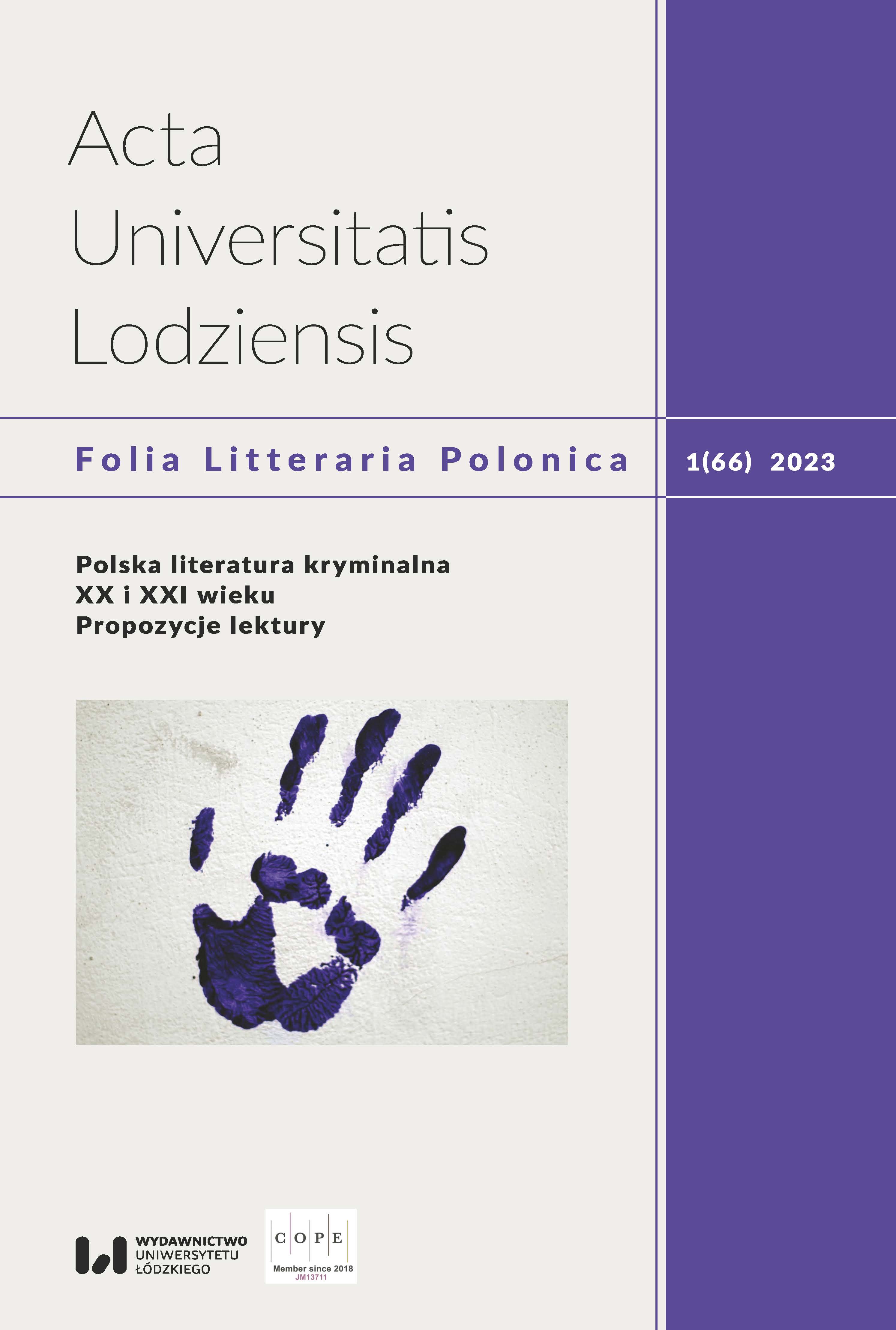Retoryka zakończenia kryminału na przykładzie wybranych powieści Stefana Kisielewskiego
The rhetoric of the end of a crime novel in Stefan Kisielewski’s chosen novels
Author(s): Mirosław RyszkiewiczSubject(s): Studies of Literature, Polish Literature
Published by: Wydawnictwo Uniwersytetu Łódzkiego
Keywords: crime novel; end; plot; narrative; liberalism
Summary/Abstract: The primary topic of the article is the analysis of three detective novels by a columnist Kisiel: Zbrodnia w Dzielnicy Północnej (1948), Wszystko inaczej (1986) and Zanim nadejdzie śmierć (1995). The first one represents “a classical crime novel”; the second one – “an open work”, “postmodern”, “anti-crime novel”; the third one – an allegedly uncompleted crime novel. Each of these works, referring to a linear-regressive narrative and a plot scheme of a crime story in a different way, uses the structure of a crime novel for slightly different purposes, which is mostly enhanced by final sequences of events. Hence the title of the article and the adopted method of analysis as both theory of a (crime) novel and theory of (classical) rhetoric as well, emphasize the key importance of the narrative and plot ending, and rhetoric enables to clarify its relevance, i.e. fulfilling various functions, thanks to evoking contexts and con-situations significant in (also literary) communication. The cognitive, educational and aesthetic, and therefore persuasive, functions of a crime novel depend, among other things, on the “open” or “closed” shape of the endings of the narrative and plot. These endings in case of each of the original, unconventional and valuable works are in fact unique.
Journal: Acta Universitatis Lodziensis. Folia Litteraria Polonica
- Issue Year: 66/2023
- Issue No: 1
- Page Range: 213-245
- Page Count: 33
- Language: Polish

